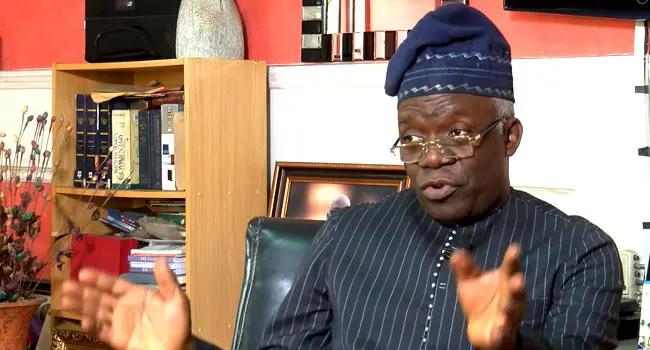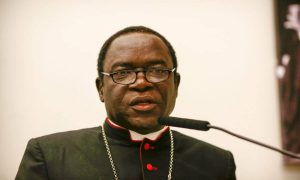Politics
June 12: Falana details how IBB paraded him as a criminal, vows legal battle

Renowned human rights lawyer Femi Falana (SAN) has announced his intention to challenge in court what he terms his unjust detention and prosecution under former Military President Ibrahim Babangida’s regime.
According to Naija News, Falana’s decision follows revelations in Babangida’s newly released book, in which the ex-leader revisits the controversial annulment of the June 12, 1993, presidential election—long regarded as Nigeria’s most credible.
Appearing on Channels TV’s Politics Today, Falana detailed how Babangida ordered his arrest alongside prominent pro-democracy figures, including the late Chief Gani Fawehinmi and Dr. Beko Ransome-Kuti. The group was charged with unlawful assembly and sedition simply for publicizing the election results.
“We were jailed for publishing the election results,” Falana recalled, emphasizing that on June 26, 1993, Babangida defended the annulment by alleging electoral irregularities, despite evidence of a free and fair vote.
Falana noted that Babangida not only nullified the election by signing the decree but also dissolved the Presidential Election Tribunal headed by Justice Bola Babalakin, actions that undercut the democratic process.
He criticized Babangida’s later attempt to distance himself from the decision, arguing, “Now, he wants to suggest that forces beyond his control annulled the election—but in reality, Babangida himself wielded that power against the interest of Nigerians.”
Following the annulment, the Campaign for Democracy mobilized protests nationwide. In response, Babangida ordered the arrest of pro-democracy activists, including Falana, Fawehinmi, and Ransome-Kuti. The accused were paraded in a Chief Magistrate Court in Wuse, Abuja, charged with sedition for merely publishing the election results. Denied bail, they were remanded to Kuje Prison under the notorious Decree No. 2.
“They foolishly believed that jailing us would stifle the protests, but they miscalculated,” Falana said.
Now, more than 32 years later, Babangida has expressed regret over his actions—a gesture Falana views as long overdue. “He deliberately arrested, detained, and branded me a criminal, only to say now, ‘We regret what we did.’ That admission confirms our prosecution was unjust,” he stated.
With Babangida’s acknowledgment that MKO Abiola was the rightful winner of the 1993 election, Falana insists that his detention and prosecution were not only malicious but also an abuse of power that violated his fundamental human rights. “I have assembled a team of lawyers, and we are taking legal action,” he declared.
When asked about whether President Bola Tinubu should formally recognize MKO Abiola as a former president, Falana dismissed the idea. “Since 1993, Abiola has been recognized by the Nigerian people as the elected president.
Those who now try to rewrite history are merely paying lip service,” he remarked. He also criticized Babangida’s plan to set up a Presidential Library, asserting that only democratically elected leaders have the legitimacy to establish such an institution.
With the former military ruler now admitting his missteps, Falana vows to pursue legal redress, insisting that justice must finally be served for the wrongs committed during Babangida’s regime.























